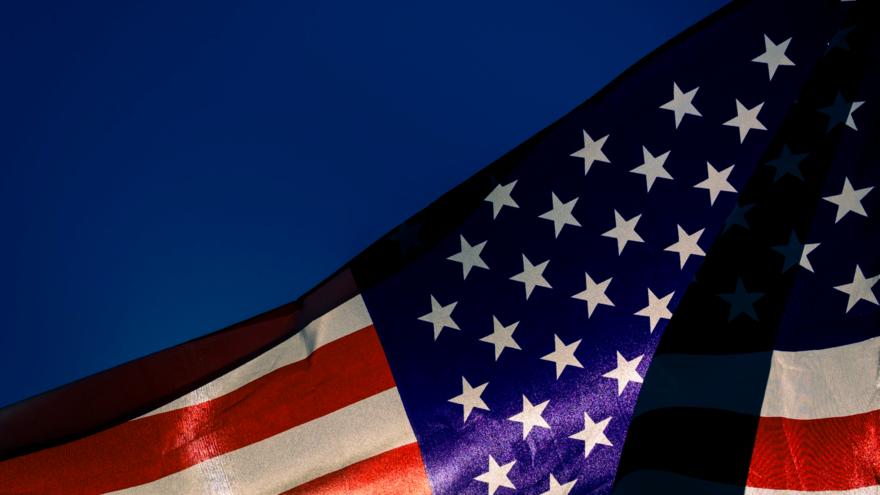What Do International Trading Partners Think About "Buying American"?

Emily Ann here! I'm in grad school at the moment (graduating 2022), pursuing an Master of Business Administration, focusing on the topics of coercive control, psychological marketing practices, and the power of (cult) influence. Below is an assignment I recently turned in (for an A+!) and I thought y'all might appreciate peeking into what I've been up to lately. Also, please pardon the formality of my academic writing style, I'm usually much more "casual" with my blog writing! ;-)
"Buying American": Do international trading partners consider this protectionist?
The Wall Street Journal recently published Yuka Hayashi's articles titled Biden’s ‘Buy American’ Plan Eyed Warily by Other Countries (January 24th, 2021) and Biden Signs Buy American Order for Government Procurement (January 25th, 2021). So how does the global business community view these announcements from Biden? What might they think about our new president encouraging Americans and American companies to "Buy American"?
Overall, it depends. It depends on the industry and goods these trading partners sell to the US. For instance, these new approaches to trade from President Biden could seem protectionist to a foreign medical gown manufacturer competing with an American manufacturer.
The economic ripple effect of this new executive order could possibly have very little effect on consumer pricing as foreign products are only 5% of direct federal procurement. However, this executive order also laid out a revised definition of American-made products and raised local-content requirements for businesses. This could, in turn, create a larger economic reaction.
Regardless, economists and organizational leadership are anticipating this executive order from Biden to represent a step in the right direction for increasing jobs in the US. Even though trade protections generally benefit domestic producers and hurt foreign producers and domestic consumers, our country is in great need of jobs, so this order could guide the country in that direction, which would overall benefit Americans, especially unemployed Americans. We might even see some foreign companies move their headquarters to the US if they are motivated to "tariff jump" and establish a presence here through Foreign Direct Investments.
Since most internal policies in the US, Japanese, Chinese, or European economies have some bearing on the rest of the world, what criteria should be used to decide whether those changes are protectionist?
Foreign organizations and businesses have referenced the US's accession to the World Trade Organization's Government Procurement Agreement, which has requirements regarding transparency, procedural fairness for suppliers, and domestic review. According to this GPA the US will still need to fulfill these standards after the signing of President Biden's new executive order.
How does "buy American" contrast with other measures to increase demand for US-made products?
Assuming the US is a large importer of a product, implementing import tariffs and quotas would generally increase domestic prices and decrease world prices, this would decrease demand for US-made products. Applying export subsidies to these products would increase domestic prices and decrease the world prices, also decreasing demand for US-made products. And although export tariffs are illegal in the US, if the US were to change that, then the domestic price would decrease and the world price would increase, which would increase US-made products.
Which trading partners will gain and which ones will lose from the "Buy American" policies?
President Obama's 2008 "Buy American" provision benefitted the Iron and Steel industries by requiring manufacturers to purchase from American producers. Implementation of President Trump's 2017 order inevitably failed, which required energy-pipeline makers to use American-made steel. However, he did issue an executive order on the day before he left office which required "American-made products" to be comprised of not 50% domestic content but increased to 95% domestic content for iron and steel products and 55% for other products.
Clearly, the American iron and steel industries benefit from these changes across both administrations. Foreign iron and steel industries do not benefit from these executive orders. Going forward, trade officials and consultants anticipate Biden's administration to do the same for the iron and steel industries.
References
Categories
- This is Your Brain (5)
- Trauma + Business (8)
- Religious Trauma (5)
- Trauma 101 (5)
- FAQs (9)
- Social Entrepreneurship (6)
- Economics & Sustainability (9)
- Feminism & Patriarchy (4)
- Deconstructing Capitalism (8)
- Emily Ann Says (11)
- Assessments (7)
- Self-Regulation Tools (7)
- Building Resilience (7)
- Helpers & Healers (4)
- Dear Congress (1)


0 comments
Leave a comment